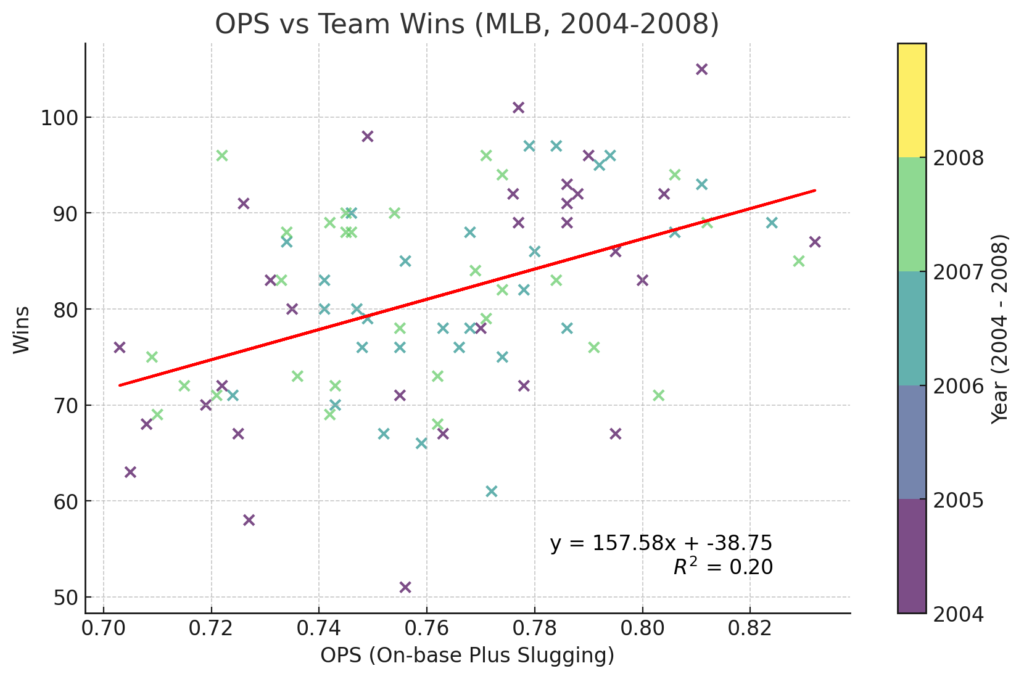
This analysis examines the relationship between a team’s On-base Plus Slugging (OPS) and their total wins in Major League Baseball (MLB) over a five-year period from 2004 to 2008. OPS is a key statistic in baseball that combines on-base percentage and slugging percentage, providing a comprehensive measure of a player’s (or team’s) ability to get on base and hit for power. The scatterplot visualizes this relationship, with each point representing a team’s OPS and corresponding number of wins for a particular season. The data points are colored by year, allowing us to observe any patterns or trends across the seasons. That factor proved not to be very useful.
A linear regression model was applied to determine if there is a significant correlation between OPS and team wins. The analysis revealed an R-squared value of 0.196. The R-squared value indicates that approximately 19.6% of the variance in team wins can be explained by their OPS, suggesting a moderate correlation. While OPS is a useful statistic, the relatively low R-squared value implies that other factors, such as pitching, defense, and managerial decisions, also play a significant role in determining a team’s success over a season.
The analysis covers data from five consecutive MLB seasons, providing a broad overview of the relationship between OPS and wins over multiple years. The consistency of the trend line and equation across the years indicates that the OPS-wins relationship is relatively stable during this time period. However, given the moderate R-squared value, this analysis suggests that while OPS is an important metric for assessing team performance, it should be considered alongside other variables for a more comprehensive understanding of what drives a team’s success.
In a recent post, I demonstrated that WHIP is much more predictive of a team’s record than OPS, at least in the mid-2000s. I don’t think anyone will be surprised to learn that pitching is more important than hitting if you want to win baseball games. There will be more on that and related topics coming soon.
